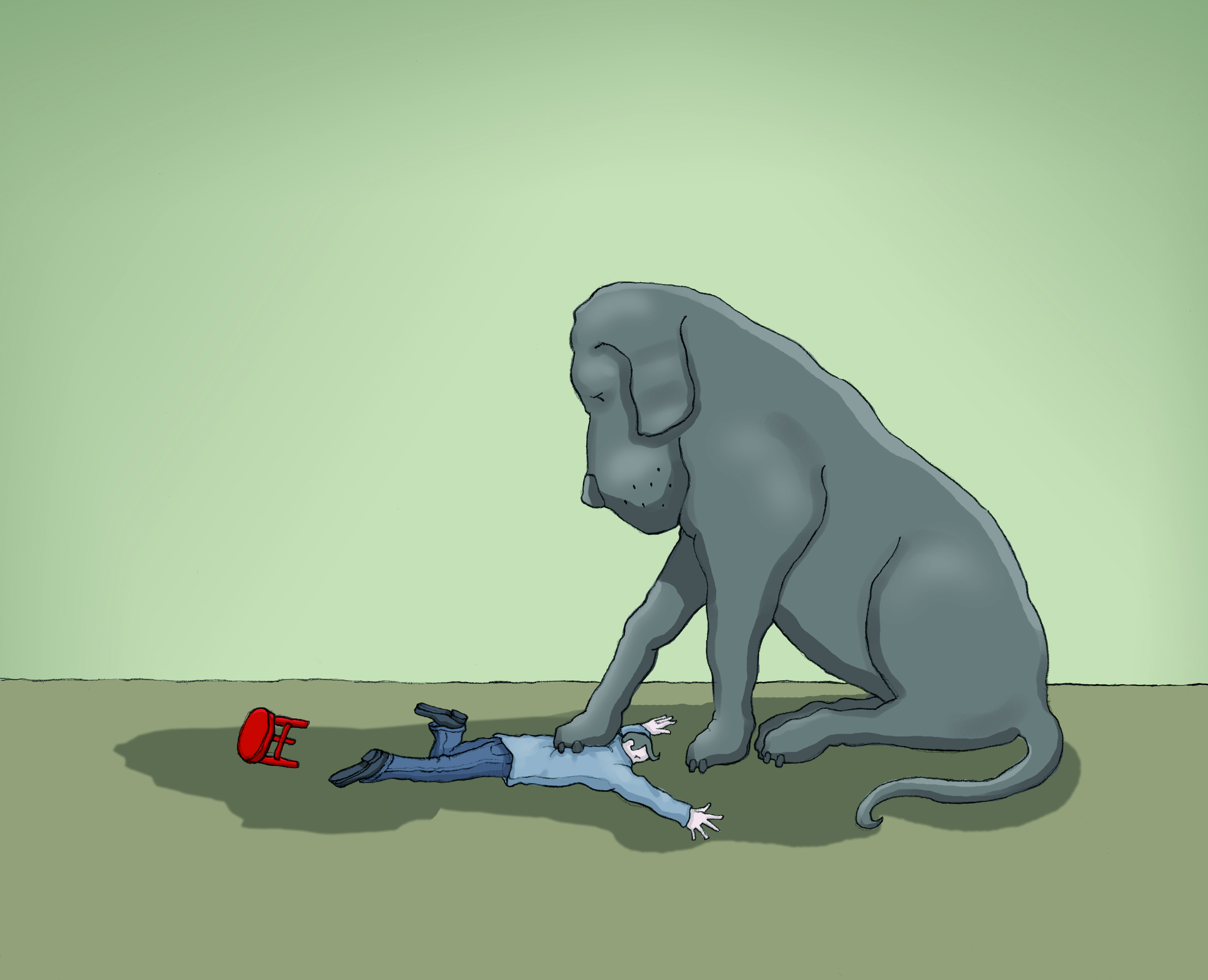
Recently back from tour and home for the holidays, we caught up with author-illustrator, motivational speaker, and creator of Drawn from Experience, Matthew Johnstone about his journey from working as a world-class advertising agency creative, to becoming an advocate for wellbeing.
I was a reasonably successful creative in advertising. My career spanned over a 15 year period, I started as a junior art director in Sydney to a creative director in New York.
It was while in that job I discovered I was a perfectionist. Advertising was really about being on and up; winning business and winning awards. There’s a saying that you’re only as good as your last ad which always kept the pressure on.
The job was interesting, always different but it was also unrelenting and because I wasn’t looking after myself, eventually I think I just burned out. I was very stressed. I think I was suffering internally. I took my job very seriously, and back in the day, there was no help, no HR to speak of. I suppose because of being a guy, and having a lot of pride and ego, I wasn’t able to seek the help that I needed to get. I wasn’t taking very good care of myself. The ongoing stress led to depression.
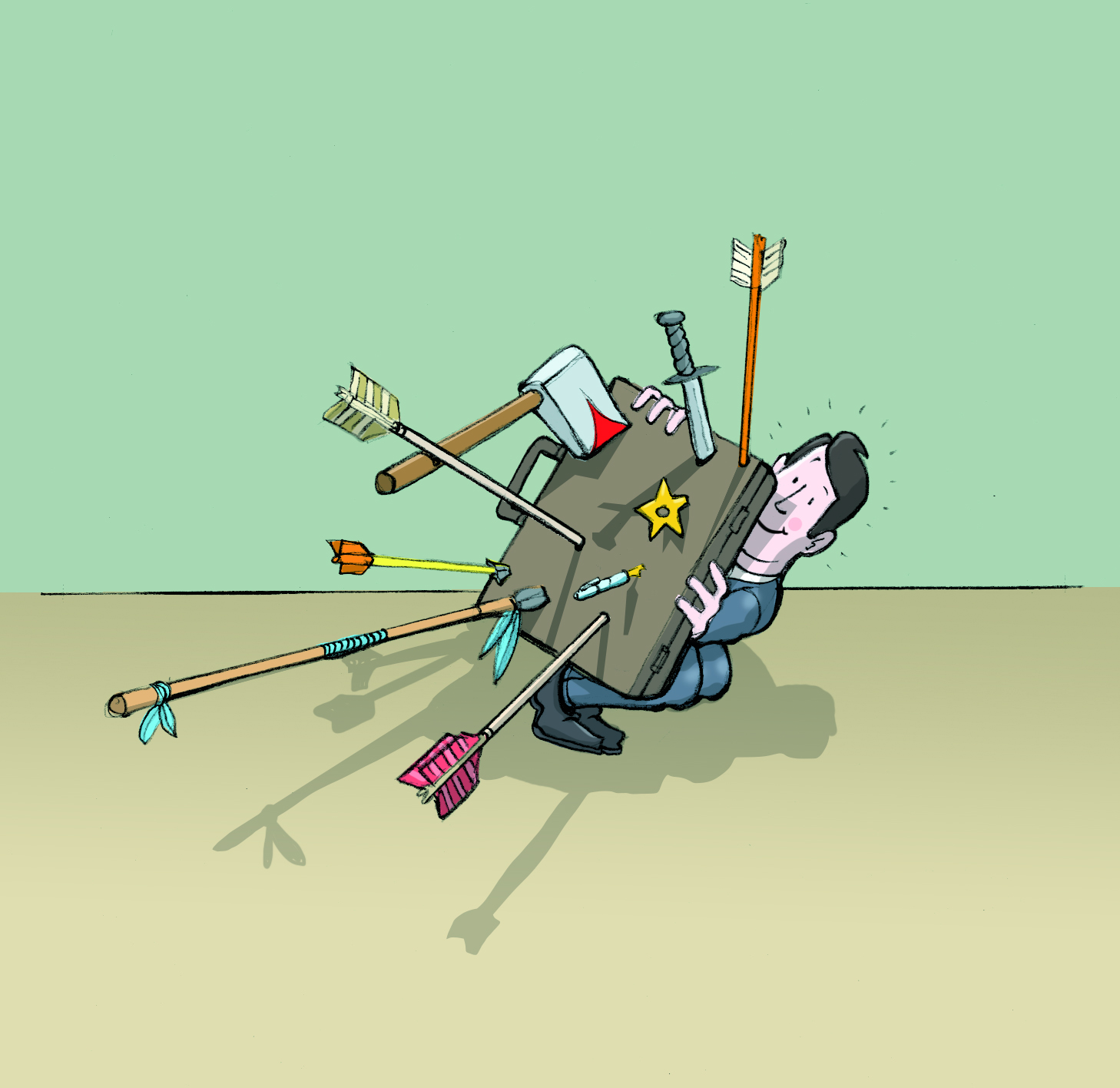
Around 2001, when I was in New York as a Creative Director, I ended up about a block from the World Trade Centre when it came down, and I think that was just a wake-up call for me that life is short and that we don’t know what’s around the corner. It forced me to do a stock take on my life and re-evaluate what was important. I think it did for a lot of people. Outwardly my career was going well but internally my trajectory wasn’t looking so good and I realised I needed to pull up and to make some major changes.
It was a revelation when that book went out. I realised I was not alone … and that there were a lot of people who were suffering in silence. I started getting lots of emails from people saying it’s as if you wrote that book about me. It was astounding. I suddenly felt very validated in telling that story.
I quite often think that carers are overlooked, not really considered, whether it’s mental health or physical, or any situation. They are the ones who are trying to keep it all together, to pick up the pieces, look after a family or run a business. It’s the person who’s suffering who gets all the attention, and it’s the carer that’s overlooked.
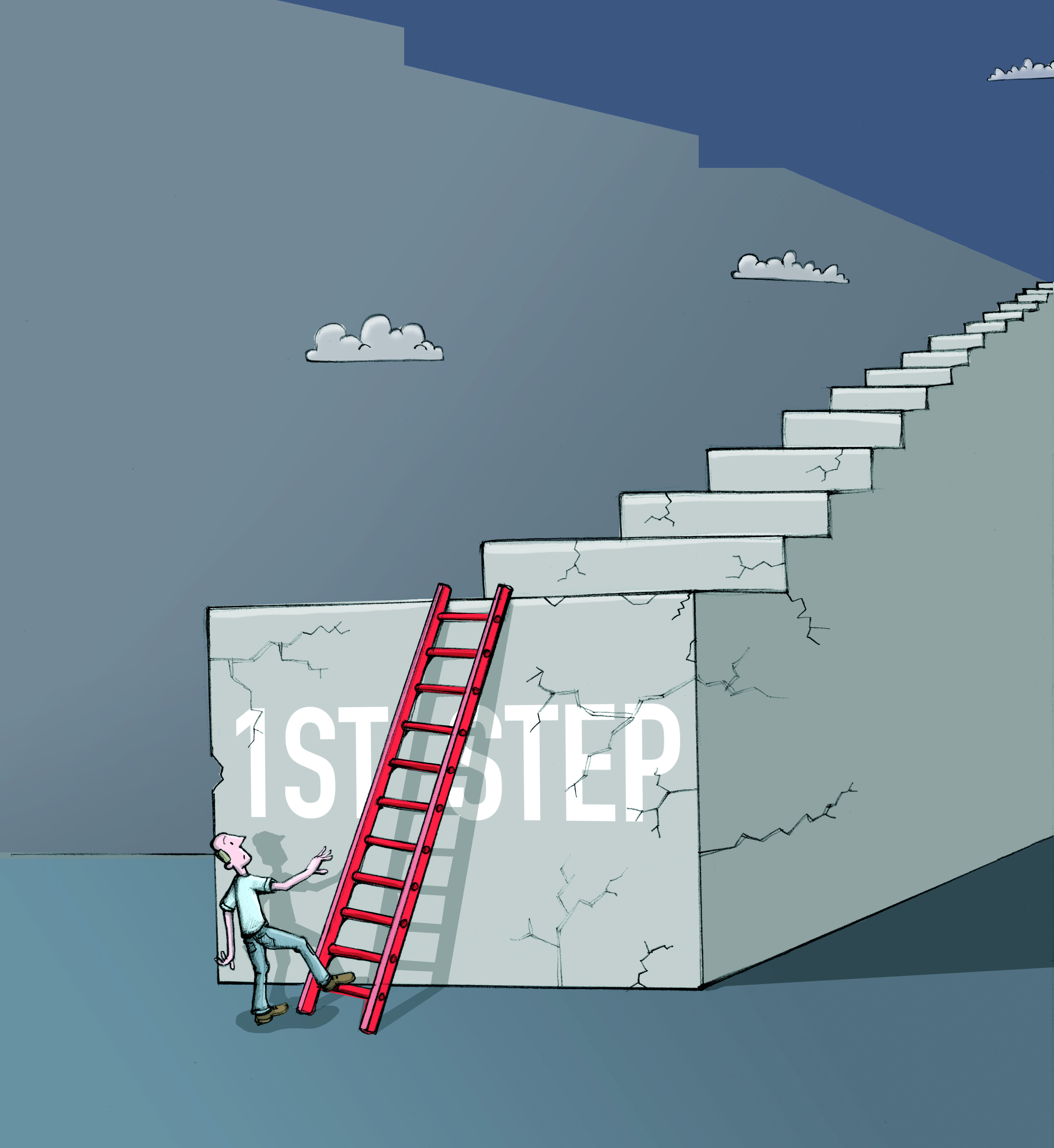
I've really dedicated my life and my day to day to understanding wellbeing. I work with a lot of mental health professionals, I work with a lot of people in the wellbeing orbit. I love it. It's so good … it's about what's important, it's about what makes us tick, and I think quite often a lot of us don't have these conversations enough.
I saw a talk from Martin Seligman, he was the forefather of positive psychology, and he said something very interesting that really struck a chord with me. He said he didn't really believe in happiness. He said happiness is the one true core emotion that we actively chase, we seek, and he said what he believed in was wellbeing. He's a self-confessed grumpy old man. With wellbeing, you can be a grumpy old man or be depressed and have wellbeing, you can have cancer and have wellbeing, you can be in a wheelchair and have wellbeing. That really rung a bell with me, as that's how I see life.
There's no silver bullet, there's no magic pill. Life’s really a potpourri of many things that we have to do around wellbeing: it's exercise, it's diet, it's good sleep, good communication, meditation and mindfulness. When we can bring those things into our lives, that's when we start to live well and just be well.
Life’s really a potpourri of many things that we have to do around wellbeing: it's exercise, it's diet, it's good sleep, good communication, meditation and mindfulness. When we can bring those things into our lives, that's when we start to live well and just be well.
That's pretty much what I spend my day to day, trying to get people to look at their lives a little differently, to see how they can make small changes. You can't change your life overnight.
What I've really learnt since doing talks since 2005 is that adults still love storytelling. I think when you can weave your own story through it, it takes the pressure off. People go, "Oh I see. He's told a story, and he's OK." It gives people comfort. I think if you can put humour through it, if you can be a little bit self-deprecating, I think it's really helpful.

That was my first foray into public speaking, and I've got to say it's probably one of the best things that could have happened to me, because I went ‘if I can get through that, I can get through anything’. It was an amazing experience. It was terrifying, but I got through it. It was probably one of the most difficult talks I've ever done, but that's where it all started. It was a good way to start.
My 'Tough and UP' talk is about the art of resilience and it has a little bit of something in it for everyone. It’s about what challenges us, how we can grow from anything that challenges us mentally and physically and how we can learn from it and be better people. I think that's a really powerful one.
The other is Stressed Spelt Backwards Is Desserts. It's how to bring some sweet ideas of calm into your life. That's based on the book I'm currently writing with a clinical psychologist called Dr Michael Player that's coming out in 2019, based on a book on stress.
I also believe if you have ongoing, unrelenting stress in your life, you've got a much higher propensity to mental health issues such as anxiety and depression.. We can't eliminate stress from our lives, but if we can understand how we can work with it, how we can realise and understand and recognise when it's there, we've got a much better chance of turning down the volume.
I'm not telling people things that they don’t know already. It's things that we constantly forget to do for ourselves. Just simple tips on how we can live a better, slightly more functional life if you like.
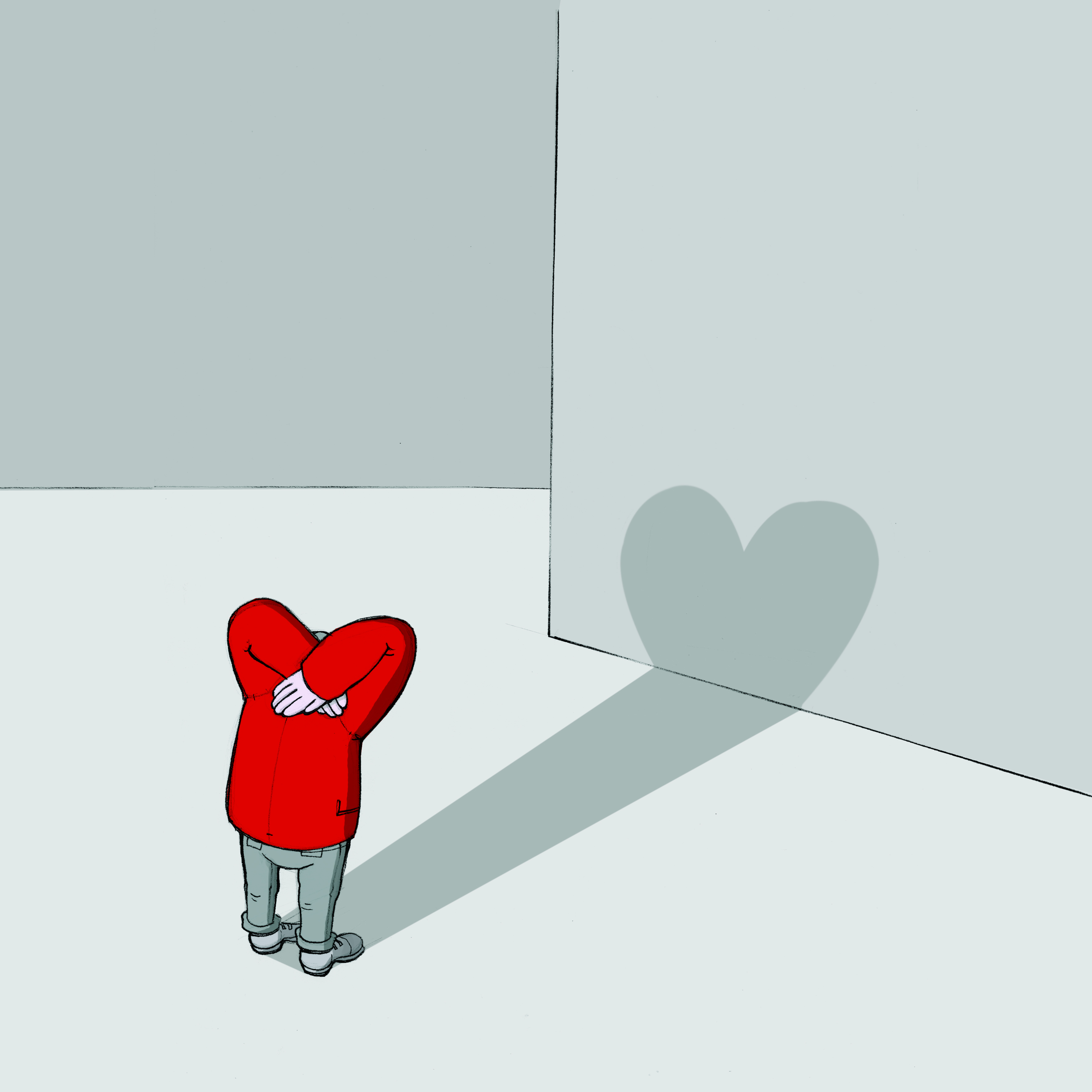
People often say they don't have time to exercise, don't have time to meditate or to eat well, and I think it's really about making the time, because I think when we're compassionate to ourselves, we're just better people to be around, to live with, to work with, better parents better partners, and I think at the end of the day, that's a good thing. It's not rocket science. It's quite simple. It's just about recognising that you're in difficulty, and striving towards the positive opposite. That's all we can do. It's not about hurdling mountains overnight, it's about baby steps. Understand and accept what it is you go through, and then, work towards its positive opposite.
Discover more about Matthew Johnstone and Drawn From Experience, or pick up a copies of his books now.

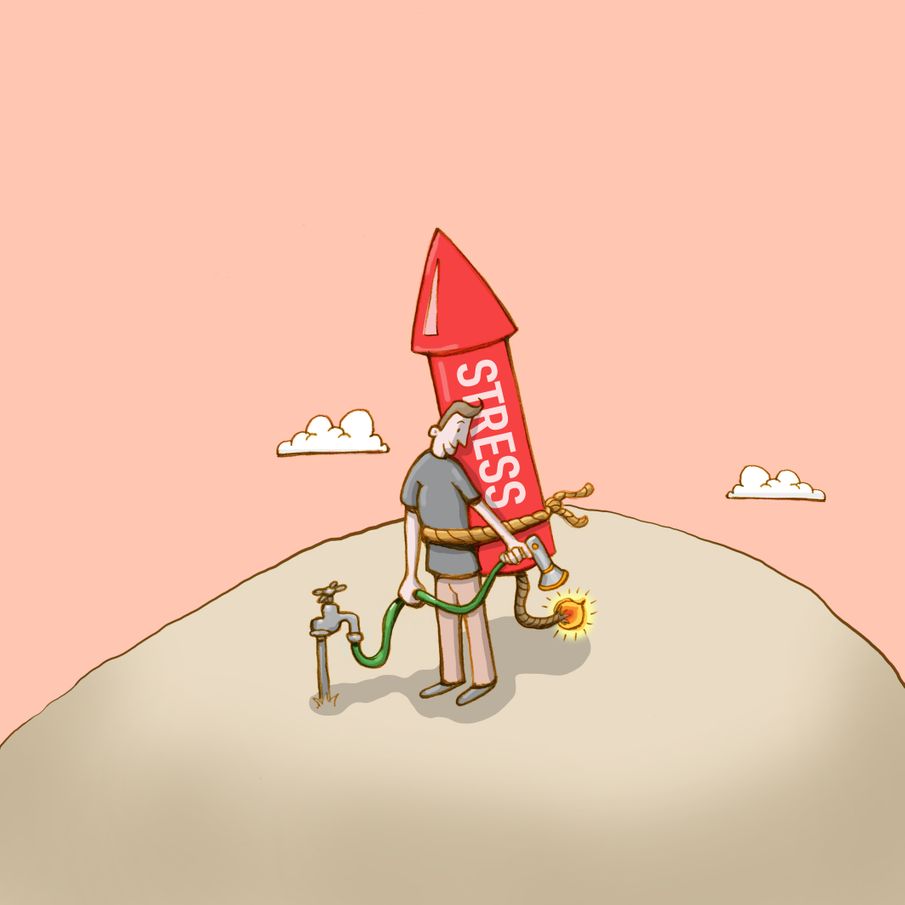
Comments